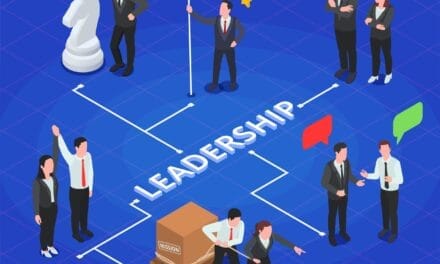Introduction
In today’s fast-paced and ever-evolving business landscape, effective leadership is crucial for the success of any organisation. However, leadership is not a static concept. It must adapt and evolve to meet the changing needs and expectations of the workforce. One key aspect of this evolution is the concept of “unlearning” outdated or ineffective leadership practices and adopting new strategies that align with the evolving needs of the workforce.
The Traditional Leadership Paradigm
Traditionally, leadership has often been associated with a top-down, command-and-control approach. Leaders were expected to be authoritative, confident, and unwavering in their decisions. While this style of leadership may have been effective in the past, it is no longer sufficient in today’s workplace.
The Modern Workforce
The workforce of today is vastly different from what it was a few decades ago. With advancements in technology, increased globalization, and a more diverse and multi-generational workforce, leaders must adapt to these changes. Employees are seeking a more inclusive, collaborative, and empathetic leadership style. They want to be heard, valued, and empowered to contribute to the organization’s success.
The Need for Unlearning
To effectively lead in the modern era, leaders must be willing to unlearn outdated leadership practices that no longer serve their organizations well. Unlearning is the process of letting go of old habits, beliefs, and assumptions that hinder progress. It requires humility, self-awareness, and a willingness to embrace change.
Unlearning involves:
- Challenging Assumptions: Leaders must question their long-held beliefs and assumptions about leadership. They should be open to the idea that what worked in the past may not be relevant today.
- Embracing Vulnerability: Effective leaders are not afraid to admit when they don’t have all the answers. Vulnerability can create trust and encourage open communication within a team.
- Learning from Failure: Failure is a valuable teacher. Leaders should be willing to learn from their mistakes and view them as opportunities for growth.
- Empowering Others: Modern leadership is about empowering team members to take ownership of their work. Leaders should provide guidance and support while allowing individuals to contribute their unique skills and perspectives.
- Continuous Learning: Leadership is an ongoing journey. Leaders should commit to continuous learning and development to stay relevant in a rapidly changing world.
Adopting New Leadership Strategies
Once leaders have successfully unlearned outdated practices, they can embrace new strategies that align with the evolving needs of the workforce. These strategies include:
- Servant Leadership: Leaders should focus on serving their teams, removing obstacles, and enabling others to succeed.
- Emotional Intelligence: Understanding and managing one’s own emotions and those of others is crucial for building strong relationships and effective communication.
- Inclusivity: Encouraging diversity of thought and creating an inclusive environment where all voices are heard can lead to more innovative and productive teams.
- Agile Leadership: Leaders should be adaptable and willing to pivot quickly in response to changing circumstances.
- Coaching and Mentoring: Developing the skills of team members through coaching and mentoring fosters growth and strengthens the organisation.
Conclusion
In conclusion, unlearning outdated or ineffective leadership practices is a vital step in becoming an effective leader in today’s ever-changing business world. The modern workforce demands a leadership style that is adaptable, inclusive, and empathetic. Leaders who are willing to challenge their assumptions, embrace vulnerability, and continuously learn will be better equipped to meet these demands and lead their organisations to success in the 21st century. Unlearning is not a sign of weakness but rather a sign of strength and adaptability in leadership.




